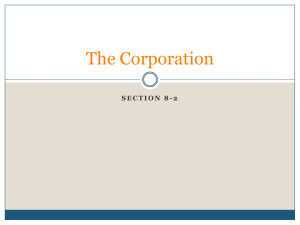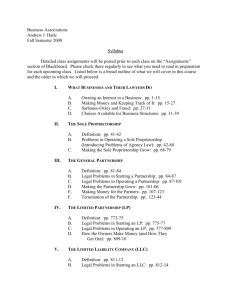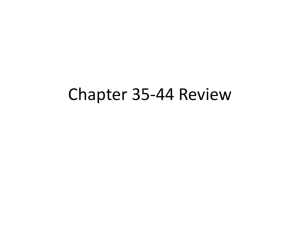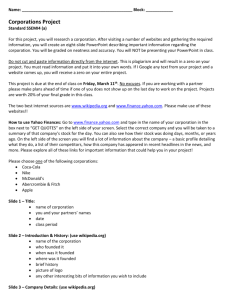Tutorial One
advertisement
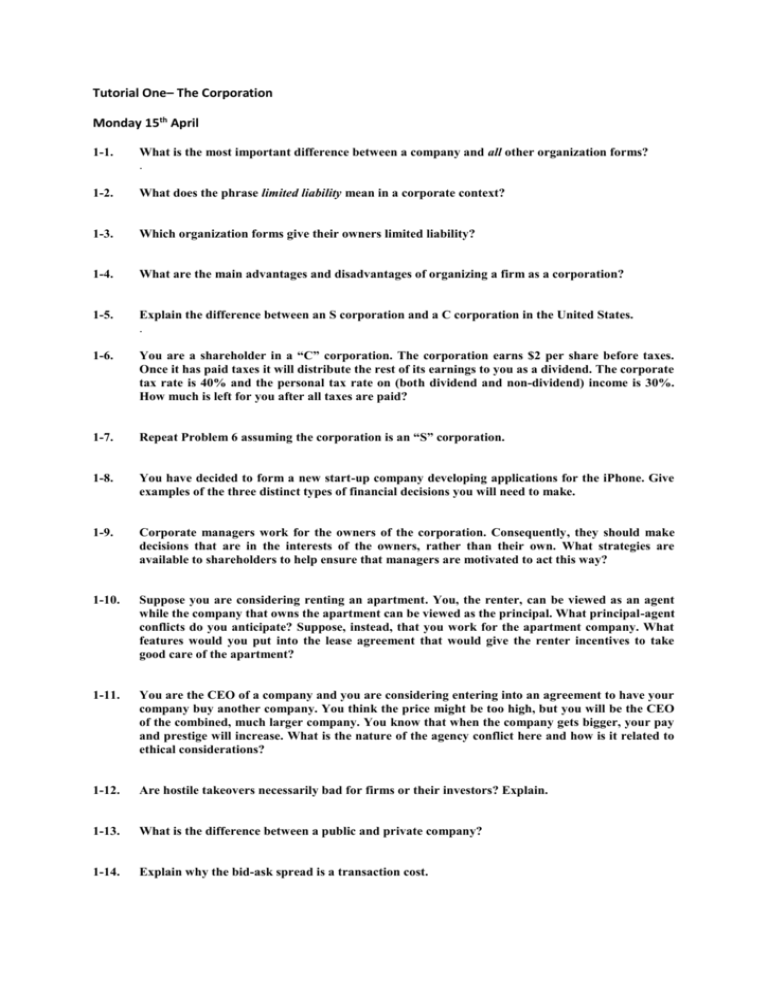
Tutorial One– The Corporation Monday 15th April 1-1. What is the most important difference between a company and all other organization forms? . 1-2. What does the phrase limited liability mean in a corporate context? 1-3. Which organization forms give their owners limited liability? 1-4. What are the main advantages and disadvantages of organizing a firm as a corporation? 1-5. Explain the difference between an S corporation and a C corporation in the United States. . 1-6. You are a shareholder in a “C” corporation. The corporation earns $2 per share before taxes. Once it has paid taxes it will distribute the rest of its earnings to you as a dividend. The corporate tax rate is 40% and the personal tax rate on (both dividend and non-dividend) income is 30%. How much is left for you after all taxes are paid? 1-7. Repeat Problem 6 assuming the corporation is an “S” corporation. 1-8. You have decided to form a new start-up company developing applications for the iPhone. Give examples of the three distinct types of financial decisions you will need to make. 1-9. Corporate managers work for the owners of the corporation. Consequently, they should make decisions that are in the interests of the owners, rather than their own. What strategies are available to shareholders to help ensure that managers are motivated to act this way? 1-10. Suppose you are considering renting an apartment. You, the renter, can be viewed as an agent while the company that owns the apartment can be viewed as the principal. What principal-agent conflicts do you anticipate? Suppose, instead, that you work for the apartment company. What features would you put into the lease agreement that would give the renter incentives to take good care of the apartment? 1-11. You are the CEO of a company and you are considering entering into an agreement to have your company buy another company. You think the price might be too high, but you will be the CEO of the combined, much larger company. You know that when the company gets bigger, your pay and prestige will increase. What is the nature of the agency conflict here and how is it related to ethical considerations? 1-12. Are hostile takeovers necessarily bad for firms or their investors? Explain. 1-13. What is the difference between a public and private company? 1-14. Explain why the bid-ask spread is a transaction cost. 1-15. The following quote on Yahoo! Stock appeared on February 11, 2009, on Yahoo! Finance: If you wanted to buy Yahoo!, what price would you pay? How much would you receive if you wanted to sell Yahoo!?

